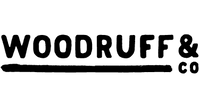What can I stamp with my traditional rubber stamp?

We’re often asked for advice on whether our custom stamps will work on a variety of different surfaces [you name it, we've been asked: coconuts, hemp, ice, leather, to name just a few]. Traditional stamps are definitely versatile, and with the right ink, you can stamp almost any surface.
Here's some key considerations to make sure the end result delivers on your expectations.
Custom rubber stamps and paper
Paper is the ideal surface for a custom rubber stamp, however not all papers are the same. Some key variables include:
1. Treated paper [ones that have a thin layer of finisher - like a varnish, which can prevent ink from penetrating. If your paper is treated, traditional water-based ink won't dry and you'll end up with a smudged print. Try a fast-drying pigment ink like Brilliance by Tsukineko for glossy paper or card.
2. The more coarse a paper is, the more “rustic” the end imprint will be. Select a less coarse paper if you’re wanting a clean and crisp imprint.
3. Colour. It almost goes without saying… but in terms of coloured paper, select the greatest contrast to your stamp colour. For example – the crisp white paper and black ink. Keep in mind that dye-based inks absorb into the paper and bind to it, which means the colour you see in your stamp pad can look different on the paper.

Cardboard
Cardboard comes with many of the above considerations of paper, however it can be coarser or corrugated. An uneven surface means your stamp won't be able to make even contact, resulting in an inconsistent print. Stamped cardboard can look great, but it’s important to ensure that the substrate used is smooth enough to make even contact with your whole design, and give a clear print [tip: stamp shipping boxes before they're constructed].

Custom rubber stamps for coffee cups
Untreated or blank coffee cups are the perfect surface for a rubber stamp. Many blank coffee cups, are treated in some way, which can result in the ink not being absorbed [hello smudged logo]. Make sure you use untreated blank coffee cups so that your coffee cup stamp ink can dry.

Concrete
Concrete isn’t the first surface people associate with custom rubber stamps. The results, however, can be impressive! Similar to cardboard, you need to ensure the concrete surface is very flat with minimal air bubbles.

Timber
Certain types of timber are another option for stamping. Similar to other substrates, ensure the wood is not treated or painted and is relatively smooth to ensure a consistent print.

Fabric
Many of our customers use cotton bags for packaging smaller items. Stamping your logo on a drawstring natural linen or cotton bag offers a super professional look, at an affordable price.









Leave a comment